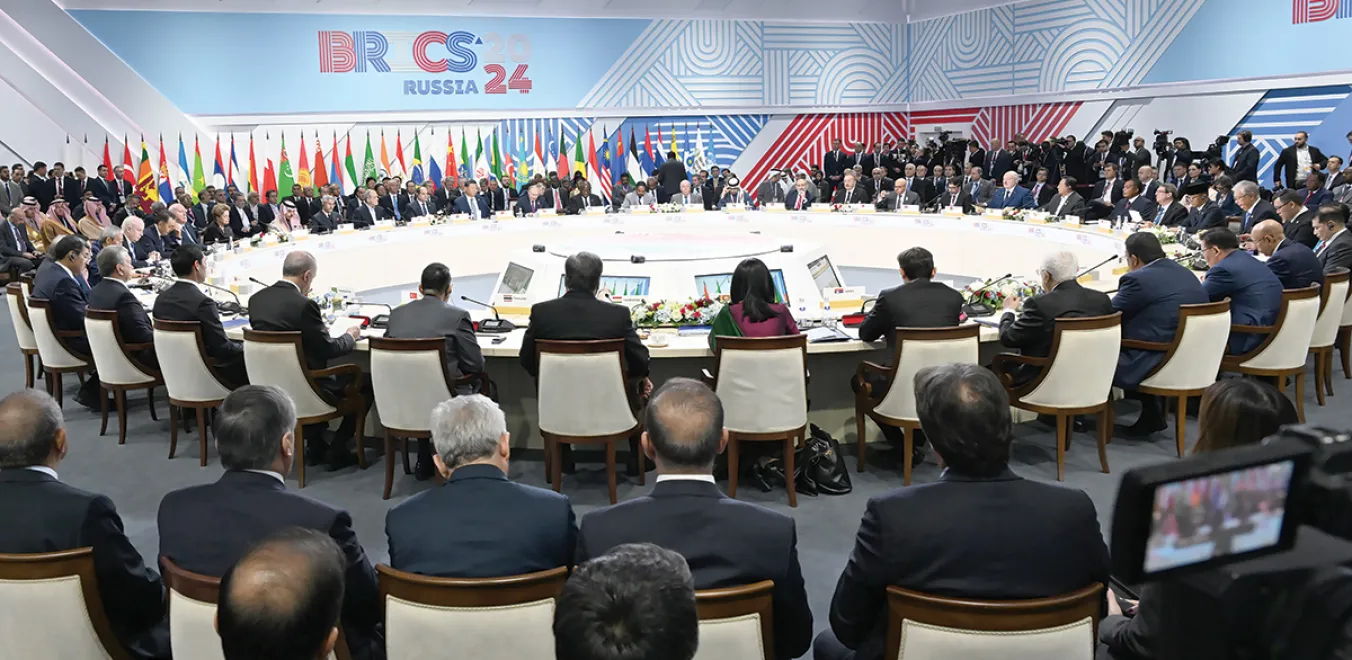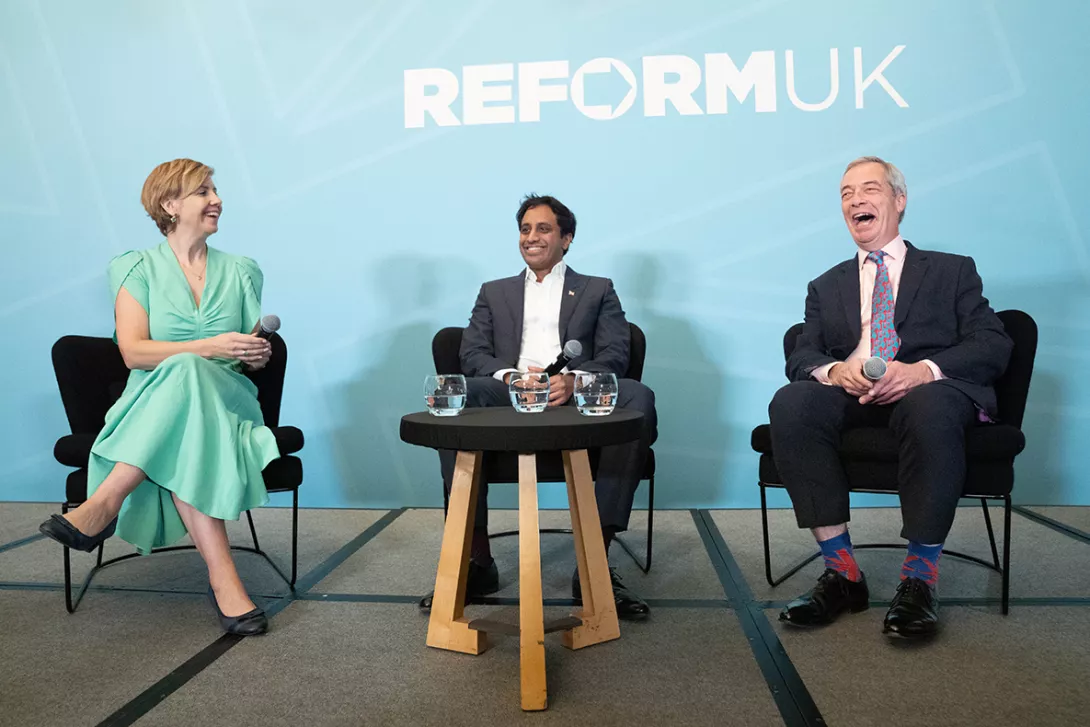
MORBID SYMPTOMS — not a bug, but a feature of the system.
It is not far short of a century since Antonio Gramsci wrote: “The crisis consists precisely in the fact that the old is dying and the new cannot be born; in this interregnum, a great variety of morbid symptoms appear.”
His quote is trotted out fairly regularly nowadays for obvious reasons.
And last week, morbid symptom number one reappeared and, moreover, won the popular vote in the US presidential election.
The Italian Marxist certainly meant capitalism by “the old” and socialism by “the new.” Probably, he was thinking of fascism when he referred to the morbid symptoms, although his use of the phrase “great variety” invites us to consider the question on a broader canvas.
At any event, in the intervening years, the old has several times risen from its deathbed and taken another turn around the dance floor.
But Gramsci has come back into vogue because it has resumed a deathly pallor in recent years. Specifically, the disasters of the Iraq war and the capitalist crisis from 2008 to date have largely discredited the Establishment ruling the leading states of the capitalist world.
Other factors include the widespread mishandling of the Covid pandemic. But the bottom line is war and slump, and as a result, the masses are alienated from the core Establishment project of our time — capitalist globalisation.
That Establishment does not know what to do about this. The fall from the complacent heights of the 1990s has been dizzying. The wind in its sails has gone, now it is fighting ferocious counter-currents, not least in the stupendous rise of China and a shift in the world balance of power that is surely irreversible.
Every political initiative to address the condition has ended up aggravating it. In that sense, Emmanuel Macron was no more than another morbid symptom, a charismatic centrist coalition-monger soon floundering between tax cuts for the wealthy and the insurrection of the gilets jaunes. With every turn, the Le Pen vote in France has increased.
Or Joe Biden. Commentators still wax amazed at Donald Trump’s apparent ability to get away with anything in terms of performative rhetorical obscenities. But is it any more amazing than pretending for years that a semi-senile genocide enabler was the guarantor of the democratic future?
And let’s not get started on European social democracy. In a crowded field, probably the two least effectual leaders of major bourgeois states this century, if one can look past the blink-of-an-eye mortification of Liz Truss, have been Francois Hollande in France and Olaf Scholz in Germany.
Studies in uselessness.
So morbid symptoms are what could be described as an expanding franchise, offering products to suit many tastes. Trump triumphant is only the most lurid in the range.
Discussion of impending fascism in the US seems to turn disproportionately around the President-elect’s personality as if that were the most consequential as opposed to merely the most box office aspect. It is surely the structural factors pushing towards a new authoritarianism which are more important.
Those include the abandonment by most of the Republican Party of any commitment to democracy, at least when they lose.
The Democrats did not miss making this point, telling voters that democracy or fascism was the choice. Either working-class people simply did not believe it, or they were not prepared to be menaced into supporting a set-up which has offered half a century of stagnant real wages and endless wars anyway. Even with a Taylor Swift endorsement.
There are guardrails against the imposition of full-blown fascism on the US. They are not to be found in its geriatric constitution, presently in the custody of a Supreme Court composed of morbid symptoms with lifetime tenure, nor in a cultural exceptionalism — US society is divided and decaying, although it cannot be doubted that very many people would fight a domestic dictator all the way.
No, the problem is running an advanced and competitive capitalist economy on the basis of a violent dictatorship rejected by much of the population. At best, it is a volatile and uncertain project and has not really been attempted for generations. Previous efforts ended as badly for the hammer as the anvil.
So, what of the new? At the moment, it is both entirely absent yet not far away. Trump’s victory seemed to consolidate an ever-growing shift of working-class voters to populist republicanism, even among demographics previously solidly in the Democrat column.
For example, Latino workers voted Republican in greater numbers than ever before, despite Trumpian tirades that did not go easy on the racism. A Wall Street Journal analysis says that while the Democrats treated Latinos as an undifferentiated ethnic voting bloc, they preferred an approach that spoke to class concerns. Well, duh.
Fair enough to say they are setting themselves up to be swindled and will have no right to be surprised, given their champion is an unabashed plutocrat. But millions would rather take that chance than continue to place their hope in the discredited Wall-Street-and-war Establishment. Whatever rejecting Harris and Biden may be, it is scarcely a sign of false consciousness.
Maybe some people in Starmer’s cabinet get this. But their whole project is built on fearing the cure more than the complaint. Fact is, the only thing to have given Trumpism a proper run for its money is not the bleating of the New York Times editorial page but the campaign of Bernie Sanders in 2016.
Likewise, it bears endless repeating that Jeremy Corbyn’s Labour was a good deal more popular than the present iteration in terms of winning the actual votes of real people. And its undoing was when it got into bed with the Establishment in trying to dump Brexit.
Like Biden, Starmer’s government is prepared to tack towards popular concerns up to and not a kilometre beyond the point where that starts causing real inconvenience to big money. Evidence is that it won’t work, as the offer of free advice by Labour’s campaign masterminds to the Harris camp proves.
But the new was in the offing under Starmer’s predecessor as Labour leader and from Sanders. Not socialism, but a break with capitalist globalisation and an opening of the door on the basis of class politics.
In both cases, the main agencies of their defeat were the Establishment forces in their own parties, which worked might and main to marginalise, exclude and defeat them and their supporters. That they were good at, but it has obviously exhausted their repertoire.
Anyway, in his celebrated address to the seventh congress of the Communist International, Georgi Dimitrov recalled his days in pre-Hitler Berlin, listening to a communist orator bang on to an audience of the unemployed about the decisions of the recent Comintern plenum, blah, blah, and losing the masses to a fascist telling lurid tales of Establishment corruption.
To that extent, Trump has absolutely no new lessons to teach. It is an organic political genius of capitalism — by which is meant it happens without conspiracy — that it can offer you both an Establishment and an anti-Establishment if needs must.
It takes to heart the dictum of Marx that “those are my principles, and if you don’t like them, I have some others.” Groucho, obviously.
So today, the main choices on offer in crumbling first-wave capitalist countries are a liberal imperial centrism, widely discredited, increasingly bereft of working-class support and which has now contrived to embroil itself in supporting genocide, and a chauvinistic populism sensing with every passing poll that its moment has come.
Both rest unequivocally on systemic exploitation of the toiling billions backed by vast military force. Both represent the forces burning the planet and slaughtering a classroom full of Palestinian children every single day.
The new has still not completed its prolonged gestation, which would shame the most tardy elephant, but it really should hurry along.
That means socialists fairly rapidly deciding whether the Labour Party is a site of struggle or an obstruction, figuring out how to connect mass street movements for change with a political project for social transformation, and re-engaging with a fractured working class they have lost touch with to a considerable extent.
So, no small challenge. “Socialism or barbarism” was always a choice seeded with the possibility of calamity and plenty of morbid symptoms on the way, from Starmer to Farage via Badenoch, but it offered something to fight for. And it beats merely critiquing competing barbarians.
















